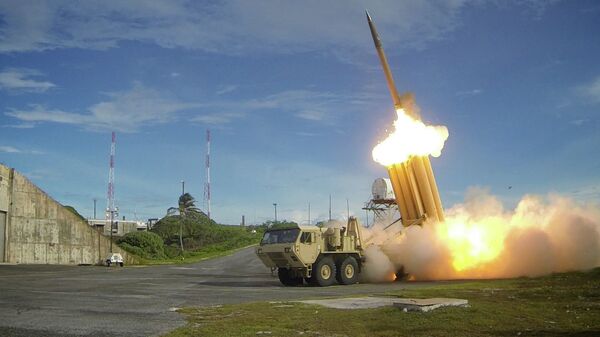Chinese Foreign Minister Wang Yi, speaking in Munich, said Beijing has urged the United States to abandon plans to deploy the Terminal High Altitude Area Defense (THAAD) to South Korea.
"The facts are clear. The deployment of the THAAD system by the United States… goes far beyond the defense need of the Korean Peninsula and the coverage would mean it will reach deep into the Asian continent," he said.
"This directly affects the strategic security interests of China and other Asian countries."
The potential deployment comes in response to North Korea's launch of a long-range rocket that placed a satellite into orbit on February 7.
The United States and other nations swiftly condemned the launch. The United Nations said it defied a Security Council resolution banning North Korea from launching rockets that could be used as ballistic missiles to carry nuclear warheads.
A day after the launch, the Pentagon said it was planning to deploy THAADS "as quickly as possible" to South Korea to defend the region against what is described as the growing threat of the weapons capabilities of North Korea.
Wang said that Washington has ulterior motives for deploying the sophisticated missile system to South Korea, including possibly targeting China, which the United States is competing with for influence in the Asia-Pacific region.
"It doesn't require experts. Ordinary people know that the deployment of the THAAD system is not just to defend South Korea, but a wider agenda and may even serve the possibility of targeting China," he said.
Wang said China is prepared to back a wide-ranging UN Security Council resolution against North Korea over its recent rocket launch in an effort to get Pyongyang to return to the negotiating table.
"(We) support the United Nations Security Council to take further steps and in adopting a new resolution so that North Korea will pay the necessary price and show there are consequences for its behavior," Wang said.



